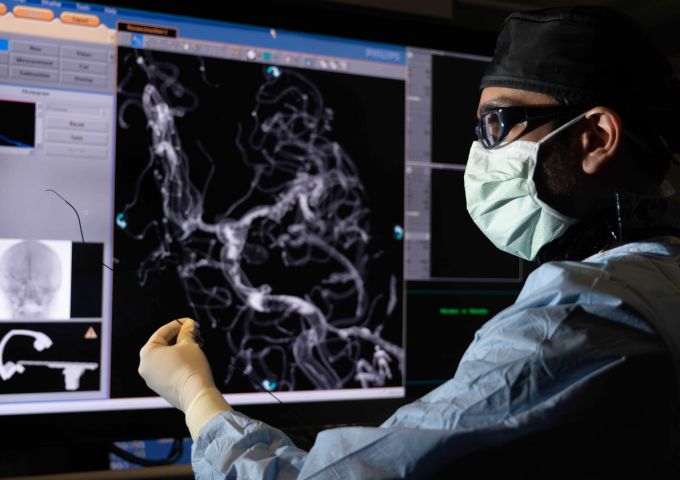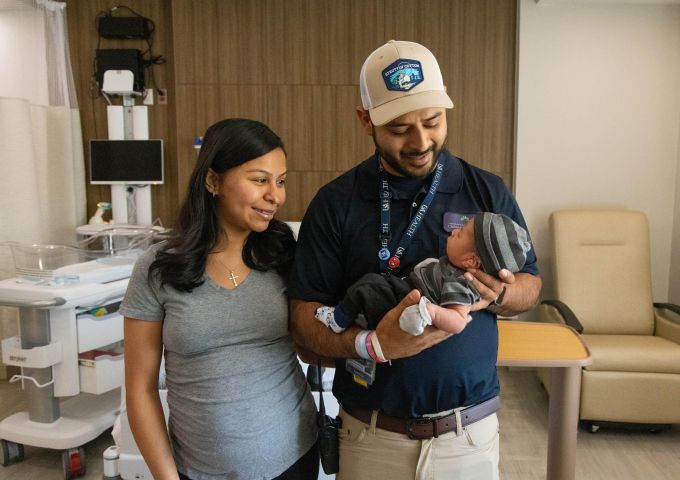
Primary care. Through his eyes.
The way Bob Israel, M.D., approaches primary care has his patients looking at health in a whole new way. See for yourself.
What difference does it make if your physician’s practice is linked with an academic health system? Isn’t primary care the same, no matter who you visit?
Bob Israel, M.D., doesn’t see it that way. He’s an internal medicine physician at USA Health. Or as he quips, “I’m basically a pediatrician for adults.”
You might not know it from his easygoing demeanor and disarming smile, but Israel is a fierce advocate for the health of each and every patient. That’s why he places a tremendous value on being part of an academic health system.
“Connection to an academic health center is a tremendous benefit for us and for our patients,” he explains. “Particularly for patients who have more uncommon or severe illnesses.”
Access to a network of related specialists is critical when you need them. But that’s just one part of the academic medicine advantage in the offices of primary care providers like Israel. Gone are the days of treating health issues with a prescription and an exhortation to lose weight or quit smoking. With USA Health, your primary care providers are more likely to offer both conventional and complementary approaches to health and wellness.
“The university’s offering us teachers so we can have yoga class for people who’ve never done yoga,” Israel says. “We have a kitchen in our new office, and we’ll be doing classes on healthy cooking techniques. And we’re going to have stress management classes.”
Yoga? Cooking? Stress management? It’s a far cry from “take two aspirin and call me in the morning.” But Israel believes it’s high time we start looking at our health differently, beginning with health literacy.
“Health literacy means understanding the impact of everything we do on our health,” explains Israel. “Exercise, what we eat, how we live, how we sleep. And there’s a real deficit of that in American culture and particularly in Southern culture. USA Health’s in the perfect position to improve that.”
These notions pervade Israel’s interactions with his patients. But they’re also practices that he’s living out in his own life. In fact, mindfulness is one of the more potent remedies we have to navigate our busy lives.
“I was one of the worst waiters in line at the grocery store,” confesses Israel. “I was ready to move to the next line almost immediately. My patients are the same. Never taking time to just be in the moment. But now I can actually stand there and enjoy the moment. I became more mindful. And I have tried to help my patients adopt the same techniques.”
It may be that the most effective way to treat common afflictions like high blood pressure or stress isn’t a miracle medication but a simple shift in the way we eat or sleep. That’s a perspective you won’t find just anywhere.
That’s seeing things differently. And that’s transforming medicine.






